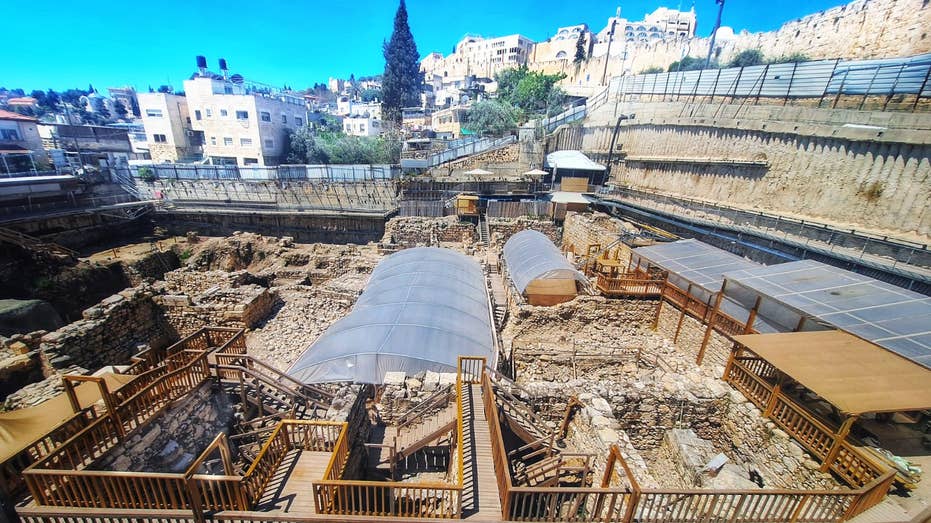Archaeological dig in Jerusalem finds fortifications believed to be from time of King David: See the photos
The excavation is one of the many carried out in the City of David National Park to help expand and reassess the understanding of history and biblical accounts of the ancient city.

Archaeologists in the City of David National Park in Jerusalem have discovered massive fortifications that would have protected the city in ancient times.
"This is a dramatic discovery that opens up a renewed discussion about the terms from the biblical literature that refer to the topography of Jerusalem, such as the Ophel and the Millo," according to Prof. Yuval Gadot, director of the excavation on behalf of Tel Aviv University.
Dr. Yiftach Shalev, director of the excavation on behalf of the Antiquities Authority, added that "We are confident that it was used at the time of the First Temple and the Kingdom of Judah … so it creates a clear buffer between the residential city to the south and the upper city to the north."
Israeli archaeologists invest significant time and resources to exploring the ancient city, which helps provide evidence for ancient stories and claims about Jerusalem that many have otherwise attributed to myth.
WRECKAGE OF SCHOONER THAT SANK IN 1893 FOUND IN LAKE MICHIGAN
This particular discovery of a moat and walls helps researchers understand the structure of the ancient city: The City of David is attributed as the core of the original and ancient city of Jerusalem where King David traveled to united Israel as one capital city, according to the national park’s website.
The discovery also helps redefine the shape of the city and will prompt researchers to reevaluate descriptions of the city and its limits within biblical accounts, the researchers said.
DIVERS DISCOVER 19TH CENTURY SHIPWRECK CONTAINING HISTORICAL ARTIFACTS IN BALTIC SEA
The date of the excavated moat remains unknown, but Shalev argued that often such "significant construction plants and quarrying in Jerusalem are usually dated to the Middle Bronze Age – about 3,800 years ago," which would align broadly with Jewish histories that talk of David traveling to Jerusalem 3,000 years ago.
"If the moat was dug during this period, then it was intended to protect the city from the north – the only weak point of the City of David slope," Shalev said.
RARE DINOSAUR SKELETONS FOUND AFTER CATASTROPHIC FLOODING
The researchers argue that the fortification was created by massive quarrying of the rock used to create the moat, with perpendicular cliffs "that could not be climbed" found on both sides of the moat – which puzzled the excavators until they realized they were looking at a fortification line.
Ancient Jerusalem sat on a narrow and steep spur, and many of the construction tasks for the city looked at helping reshape the topography of the surrounding area – all activities that the Bible references, such as in the first book of Kings where it discusses King Solomon’s task of building up the "Millo," or supporting terraces, and "close the breach of the city."
The results of the excavation will be presented at the City of David's "Jerusalem Studies Experience" Conference, taking place in early August.



